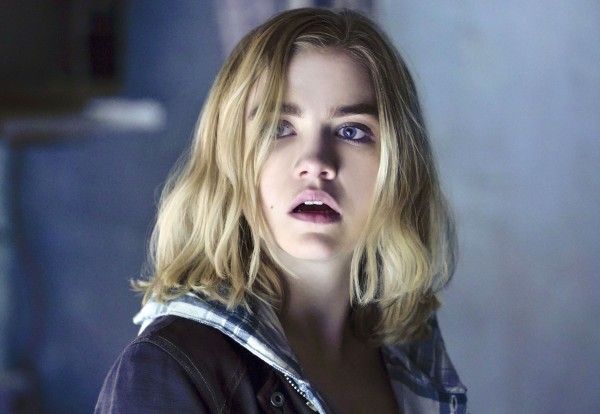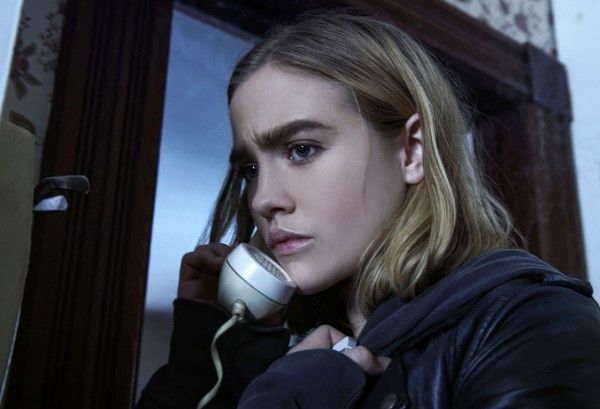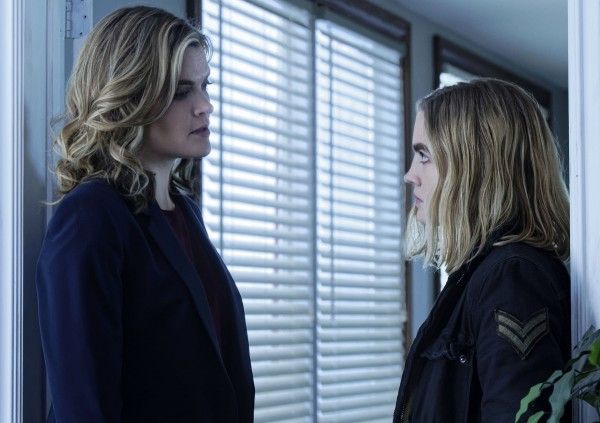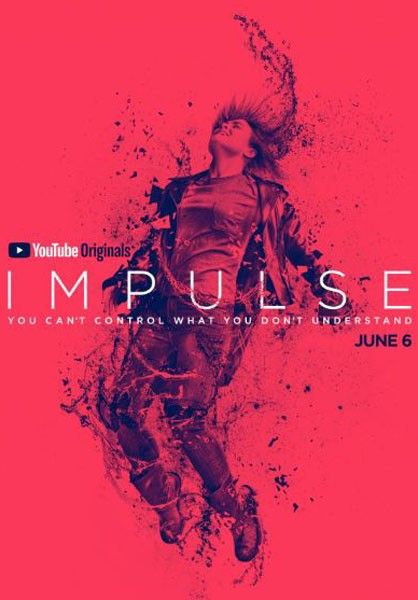With a pilot directed by Doug Liman (who directed the feature film Jumper, which was set in the same universe), the YouTube Red original series Impulse follows rebellious 16-year-old Henry (Maddie Hasson), who after a traumatic event discovers that she has the extraordinary ability to teleport. This power, which proves difficult for her to get a handle on, not only confirms her belief that she’s different from her peers in the seemingly quaint small town that she lives in, but also makes her the focus of those who would want to control her.
During this 1-on-1 phone interview with Collider, actress Maddie Hasson talked about what made Impulse appealing to her, why she loves her character, what makes Henry less of an angsty teen and more of an angry teen, having the freedom to swear when necessary, the physicality of the role, exploring the trauma that brings on these powers, shooting the teleportation scenes, having Missi Pyle play her mother, and the amount of answers vs. new questions you’ll have, by the end of the season. Be aware that there are some spoilers discussed.
Collider: When I spoke to Doug Liman at WonderCon, he told me that he had a very different idea for the character that was going to be at the heart of this show, and that if that had ultimately been the character, you wouldn’t have been able to play her. But he also said that, through auditioning you and loving what you did, he redesigned the character so that you could play the role. Did you have any idea that any of that was going on? Is that something he ever told you?
MADDIE HASSON: No, I didn’t know that. I met Doug once, for the screen test, and then months went by, before I found out I got the part. And then, I met him months later, when we finally decided to shoot in Canada, and I had no idea. He mentioned it, in passing, to my manager. My manager visited the set and said, “They rewrote this for you.” I was just shocked. I was fully shocked. I had no idea. The less I know during the whole process, the better.
If you’re going to be on a show, it must be awesome to be on a show where the character was rewritten for you.
HASSON: Awesome is a good word for it. It’s very, very humbling and nice. I’m happy with it, for sure.
This story can be very big and epic sci-fi, but it’s also just a simple coming of age story, for this young woman. When the opportunity to do this came your way, what was the most appealing aspect of it for you?
HASSON: I loved Henry, from the very beginning, even when she was very different. They had her written as a skateboarder and she was a lot more of a typical stoner, but I loved how closed off she was. I loved how fed up she was with being ignored, and I loved how very much herself she was, and is today. They didn’t ever once try to stifle that, in the writing process. When you see female characters, at least when I’ve seen them, in the past, you can see how people try to bend female characters who are strong, to try to make them more likeable or less “annoying.” Some people seem to think that when women have emotions, it’s annoying, for some reason. That’s frustrating, rightfully so, but they never tried to do that with Henry. That was so lovely and refreshing to see, and to get to experience. People will describe Henry as angsty because she’s a teenager, and the word angsty is very commonly used, but it’s also belittling and dismissive. Just because she’s a teenager, it doesn’t mean that her experience in life isn’t real or valid. She’s not angsty, she’s angry. I think that’s changing, in the way people write teenagers now, which is good.
What do you think it is about Henry that makes her such a strong character?
HASSON: Henry really knows who she is, which I don’t think is necessarily all that common for somebody who’s 16 years old. She knows who she is and what she wants, and she doesn’t take any shit, for lack of a better phrase.
That’s definitely an appropriate phrase, for sure.
HASSON: Oh, my god, the note that I got the most on set was, “Could you say the F word a little bit less? We wrote it in for you. You don’t have to add more fucks. There’s no reason.”
This show gets dark, it gets a little weird, and you’re able to swear. Was it nice to feel that sense of freedom, especially knowing that you’re doing a show about a teenager and there aren’t too many places that you’d be able to get away with doing that on TV?
HASSON: Oh, my god, it was so nice! It was so nice to be able to say the F word. I know that may seem kind of silly. YouTube is so great because they didn’t try to meddle in our show to make it specific to YouTube’s brand, or anything like that. They gave us a lot of freedom, which was so nice. There are so many situations where it’s necessary to swear in this show.
What have you most enjoyed about getting to play Henry?
HASSON: I loved just getting into that space that is Henry because she walks differently than I do. She has this slouch, and she has a wider stance. She walks up with confidence. She’s not confrontational because she doesn’t want to talk to anybody. She hates everyone. She just has this power to the way that she stands, that I admire very much. Even though I’m the one doing it, it’s something that’s not very me, in my opinion. So, just getting into the space that is her has always been really fun for me.
Henry gets sexually assaulted, and then to make things even worse and even scarier, she teleports. As a character for whom trauma sparks this power that she can’t control, what was it like to explore that aspect of the show, as well?
HASSON: It was difficult to explore the assault aspect. It was difficult and painful and challenging. I met with a therapist that specializes in sexual assaults. She meets with a lot of victims, and I sat down with her, before we started shooting, and spent an hour or so with her, talking. I actually spoke with her, throughout the shoot, because I knew it was going to be hard and painful, and it was so important to get it right. If you live long enough, you likely know somebody, personally, who has been assaulted, and I do. Everybody probably does, at this point, and that’s very sad. It’s something that you have to be careful about because you want to speak to a terrible experience in a way that is real and authentic, and makes people feel heard that have been so hurt by something so awful, which I hope we did. It’s also interesting that we really explore that family of men, as well. You explore the consequences of being assaulted, and of being the assailant. You get to see both sides of the coin, and what happens to you after you commit such a terrible act. I think (showrunner) Lauren LeFranc really carefully and strategically did that, in a way that is very interesting to me.
At least, in the beginning, the teleporting seems to be quite violent for Henry. What was it like to shoot those scenes, especially with the mass destruction going on?
HASSON: Oh, my god! It began with the seizures, and the physicality of doing a seizure is not natural. When you shoot something, you have to do it from five different angles, and you have to do those five different angles about 50 different times, so it hurts. It’s painful, and your body is very sore. That was an experience in itself. Then, adding the effects was really cool. For the car scene, we did physical effects, so pieces of the car were rigged so that it could move and have the very gritty, real effect that the teleportation does. We did visual effects and live effects.
It seems like Doug Liman, who directed the pilot, really took a lot of care with this, especially knowing that he always seemed bothered by how Jumper came out and he spent a long time thinking about how he’d like to have another crack at this story.
HASSON: Doug loves this story, and he wanted so badly to get it right that, on the last day, when I was fully wrapped up, I don’t know if he’ll be happy that I’m saying this, but Doug cried a little bit, I think because he felt like we had gotten it right. I think that he felt good about it.
I love that, along with the cool sci-fi aspect of this story, we get a real family drama, as well. How would you describe Henry's relationship with her mother, and what’s it like to have someone like Missi Pyle to explore that with?
HASSON: Missi is the greatest! I love her so much. I had watched her before, in movies, but we had never met or worked together, before we did this. We met on set, in Canada, and we got so lucky that Missi and I have such a deep connection, from the very beginning. It made doing scenes with her playing my mother very emotional, for both of us. Henry and Cleo’s relationship is difficult, in a way that I think a lot of mother-daughter relationships are difficult. They just can never quite seem to get their timing right. They can’t emotionally meet in the middle. Whenever Henry is closed off, Cleo’s trying to be open, and whenever Cleo feels a little bit burned by Henry’s behavior, Henry is trying to make up for it. They can never find their footing. It’s just hard.
By the time we get to the end of this season, will we feel like we have some answers and a good idea of where things could go next, or will we have even more questions?
HASSON: I think you do get some satisfaction, in moments,. You will have answers, but you will also have more questions. You’ll see the world start to expand because she is not the only person that has the ability to teleport.
Impulse is available to stream at YouTube Red on June 6th.





